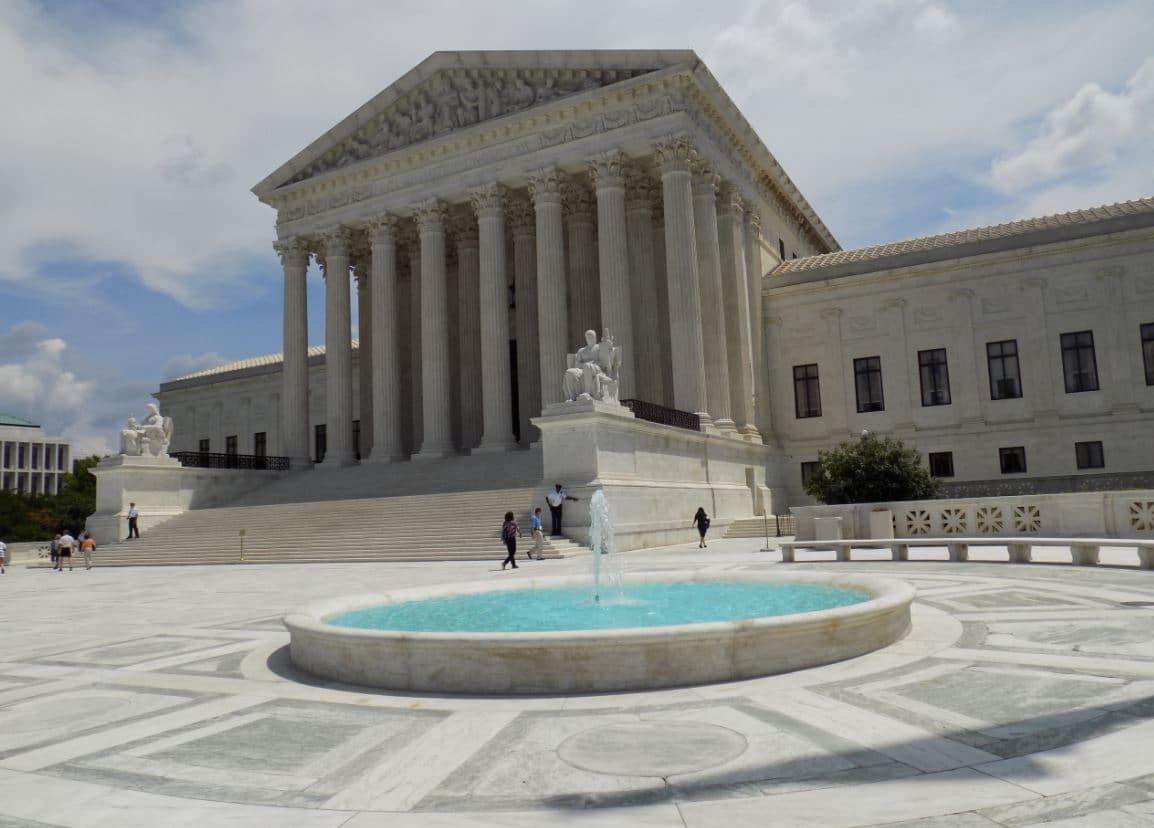Supreme Court Says Georgia Can’t Copyright State Code

WASHINGTON – The U.S. Supreme Court ruled Monday that an annotated version of Georgia’s state law code is not subject to copyright protection because it is a “government edict” and must be free for all to use.
In a 5-4 ruling, the judges rejected a copyright infringement lawsuit the state brought against a group called Public.Resources.Org, Inc., which copied and distributed the code without paying for it.
The annotations in the current Official Code of Georgia were produced by Matthew Bender & Co., Inc., a division of the LexisNexis Group, pursuant to a work-for-hire agreement with the 15-member Code Revision Commission, a state entity composed mostly of legislators.
Under the agreement LexisNexis has the exclusive right to publish the annotated code, as long as it limits the price and makes a version without annotations free online.
But Georgia claims the copyright and sued Public.Resource.Org, a non-profit that advocates for public access, for infringement when the organization tried to publish the code on its own.
Writing for the majority decision, Chief Justice John Roberts cited a trio of 19th century cases.
In Wheaton v. Peters (1834), the court held that no reporter can have a copyright on the court’s opinions and that the Justices cannot confer such a right on any reporter.
In Banks v. Manchester (1888), the court held that judges could not assert copyright in “whatever work they perform in their capacity as judges” — be it “the opinion or decision, the statement of the case and the syllabus or the head note.”
Finally, in Callaghan v. Myers (1888) the court reiterated that an official reporter cannot hold a copyright interest in opinions created by judges.
The animating principle behind the government edicts doctrine is that no one can own the law.
“Because Georgia’s annotations are authored by an arm of the legislature in the course of its legislative duties, the government edicts doctrine puts them outside the reach of copyright protection,” Roberts said.
He was joined in the majority by Justices Sonia Sotomayor, Elena Kagan, Neil Gorsuch, and Brett Kavanaugh.
But Justice Clarence Thomas worried about the impact the majority’s decision would have on the 22 other states along with the District of Columbia that rely on arrangements similar to Georgia’s to produce annotated codes.
“The majority’s rule will leave in the lurch the many states, private parties and legal researchers who relied on the previously bright-line rule,” Thomas wrote in his dissent. “Perhaps, to the detriment of all, many states will stop producing annotated codes altogether.”
Thomas argued that annotations can be copyrighted, although Congress can step in and change the law.
His dissent was joined in full by Justice Samuel Alito Jr., and in part by Justice Stephen G. Breyer.
Justice Ruth Bader Ginsburg wrote a separate dissent that was also joined by Breyer.
“Beyond doubt, state laws are not copyrightable,” Ginsburg wrote. “Nor are other materials created by state legislators in the course of performing their lawmaking responsibilities, [for example], legislative committee reports, floor statements, unenacted bills.
“Not all that legislators do, however, is ineligible for copyright protection; the government edicts doctrine shields only ‘works that are (1) created by ‘judges and legislators (2) in the course of their judicial and legislative duties.’
“Because summarizing judicial decisions and commentary bearing on enacted statutes, in contrast to, for example, drafting a committee report to accompany proposed legislation, is not done in a legislator’s law-shaping capacity, I would hold the OCGA annotations copyrightable and therefore reverse the judgment of the Court of Appeals for the Eleventh Circuit,” she concluded.























